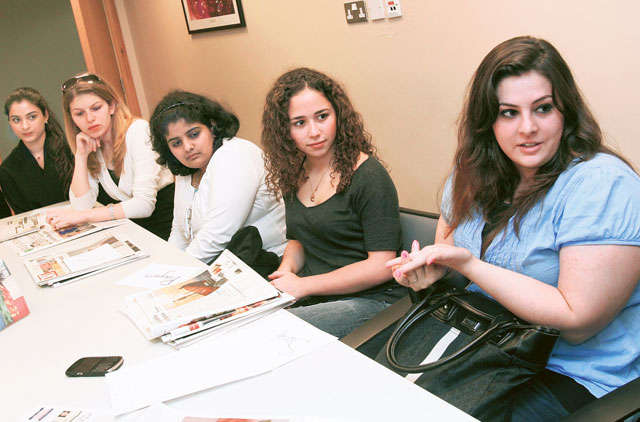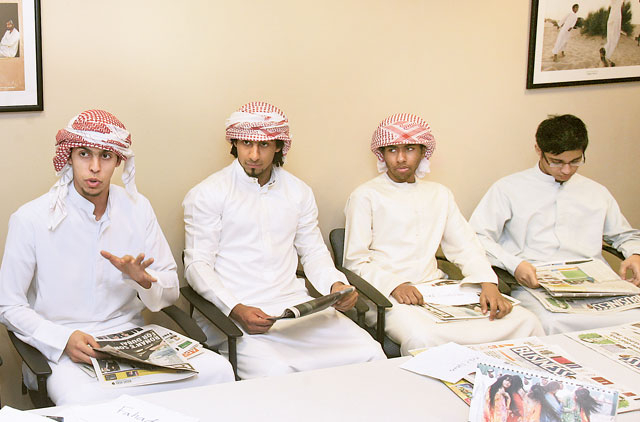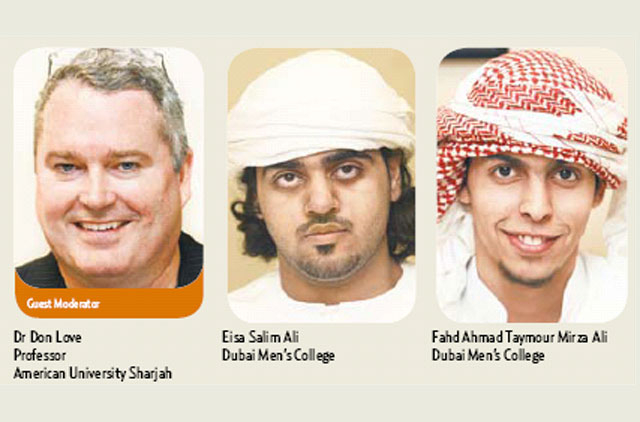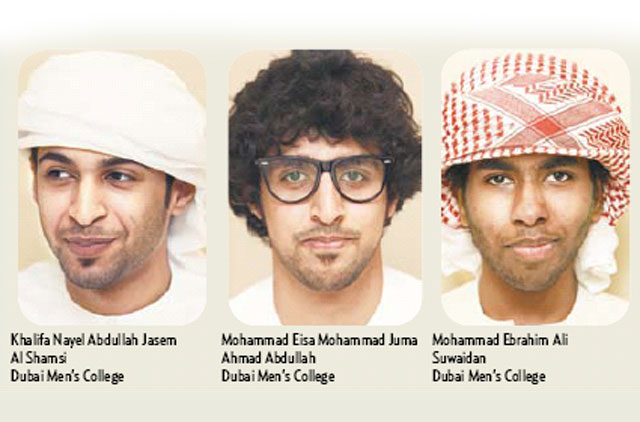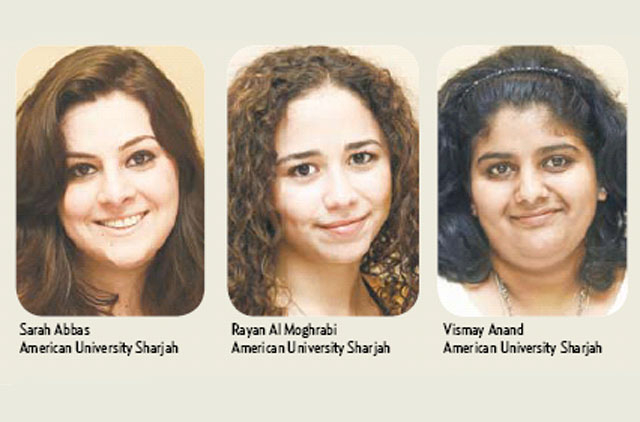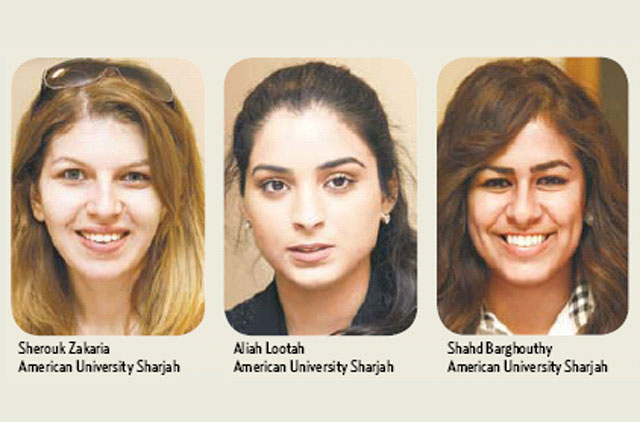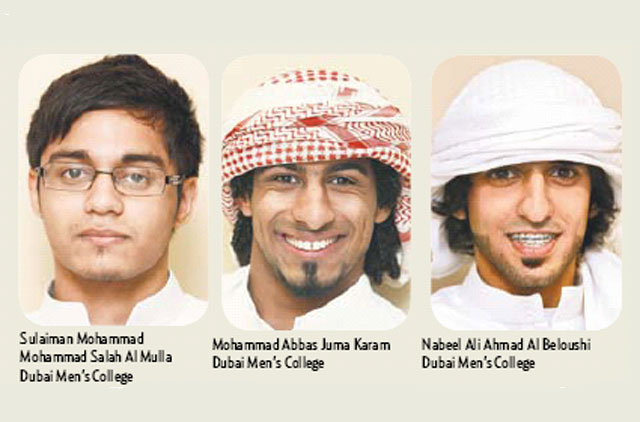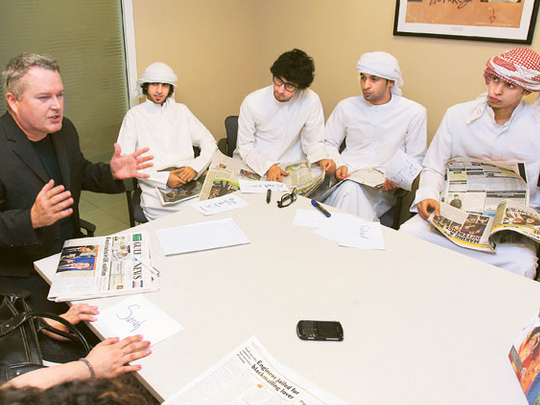
It was created as the Fourth Estate in society. The role of the media was as a guardian of public interest, meant to search for the truth and demand accountability from the powers that be. From that role as a watchdog in society to following celebrities shop around town and pick up their favourite designer wear, the media across the world seems to have undergone an interesting transition. Has the media completely given in to its role as the watchdog and started focusing on celebrity news and entertainment? Or has it simply evolved to include news and information for people with diverse tastes and interests? In the age of social media, high-definition internet TV and virtual simulation, is traditional media competing for attention with too many platforms? And in the process, is it failing to fulfil its purpose? Young media students from universities in the UAE came to the Gulf News head office to voice their views on the debate, while media and mass communications professor Dr Don Love took the position of guest moderator. Here are the excerpts.
Dr Don Love: Is the role of media to inform or to entertain?
Shahd Barghouthy:
I think it should be to inform, because if I want to be entertained I have other things like I could watch [TV show] episodes or listening to music. But news should be more about informing people about what’s happening in the world.
Fahd Ahmad Taymour:
I would say to entertain because people like to know more about things like music.
Mohammad Eisa Mohammad Juma:
It should be both, because people don’t like it when everything is serious, they need some fun.
Rayan Al Moghrabi:
News should be informative but to sell it needs to be entertaining. Nobody is going to read something just for the information. If you want to learn, you go to school or college, that’s what you do. But when you actually buy something to read you are looking for entertainment, but you would also want to get some information from it.
Sarah Abbas:
For example, in the US at the moment there are the Republican primaries going on. Ron Paul, who seems like a good candidate doesn’t get as much recognition because he doesn’t pull as many political gaffes as much as Rick Perry, who got a lot of attention because he made some mistakes. So, that’s what the media focuses on. The smarter candidates aren’t getting as much recognition. It is focusing on the entertainment, the mistakes, the gaffes, the fun. Even when you want to go and inform yourself with the news you will have to scroll down on a website to reach it because the first thing that is going to pop up is the mistakes they make.
Aliah Lootah:
I think it should be more informative because if you are reading the newspaper online, in a click you can go to something that is entertaining. Also, if you read a news report, you would select something that you are interested in, so that would be part of entertainment to you.
Mohammad Ebrahim Ali Suwaidan:
With social media, news has become faster so you get the story fresh from the oven.
Dr Don Love: Has the media stopped playing the role of a watchdog?
Rayan Al Moghrabi:
Media is doing a terrible job at being a watchdog. There were video clips being pubilshed recently that were from the past, which were shown as something that is happening in Syria right now. So, this is the media itself showing us incorrect information at an incorrect time and we are supposed to believe it. So, not only are they not stopping politicians from being dishonest, sometimes they are being dishonest themselves just to sell news. This is what people find interesting, this is what people want to hear so this is how we are going to sell it.
Shahd Barghouthy:
I think it is better now because it is more transparent – there is more reality and honesty, which is the main purpose of the media.
Eisa Salim Abdul Khaleq:
I agree with Rayan’s argument. For example two weeks ago there was the news of a maid who got killed. They put her picture in the newspaper and it was all around the place! It was on phone messaging services, that’s a terrible thing to do. I don’t think I as a journalist would publish news like that. I wouldn’t run something that would affect the relatives or friends of a victim negatively. Sometimes, the media ruins people’s lives.
Vismay Anand:
I would just go to the point that everybody wants to make money — including journalists. It depends on the journalist whether he/she wants to stay professional.
Sarah Abbas:
There are also other issues that stop the media from being a true watchdog. Like the government, for example, wouldn’t let them know everything to the last detail. So, they have walls that prevent them from being an accurate watchdog.
Rayan Al Moghrabi:
The media today has become more transparent also because of social media. People are not just relying on official media sources anymore. If the media doesn’t do their job, somebody will do it for them. In a way it is forcing journalists to be more honest.
Dr Don Love: Is social media easier to trust than traditional media?
Mohammad Ebrahim Ali Suwaidan:
No, in social media you get mixed up between rumours and the actual event. There are a lot of people who use these websites, so you never know who to trust.
Shahd Barghouthy:
I think both have their advantages and disadvantages, but if I pick up a newspaper I know that there is a source for each article and it is credible. Online, anyone can post anything, including rumours.
Sherouk Zakaria:
More importantly, when you read a newspaper you know that these stories are written by jounalists who are pofessionals, not just anyone. I personally do not believe everything that I read on social media because anyone can post anything.
Mohammad Abbas Juma Karam:
Sometimes professionals can lie.
Khalifa Nayel Al Shamsi:
They wouldn’t publish something that they aren’t 100 per cent sure about because there are consequences. On social media, it is as simple as clicking
a button.
Rayan Al Moghrabi:
We still have to be skeptical while looking at professional news. Don’t forget after all that they are trying to sell. It might be true, but you have to be careful and try to look beyond that – maybe they are showing you just a part of it and there is a context beyond the two columns of news.
Sarah Abbas:
You have to be careful with trusting either, but it is easier to actually trust professionals because they have certain processes they have to go through to get the information and like they mentioned, there will be consequences. With online news, you don’t know who it is – they are basically hiding behind a computer.
Sherouk Zakaria:
I think yes, when you read a newspaper you should be careful of the biases that the journalist of newspaper might have, but I think it is still worth believing it more than social media.
Rayan Al Moghrabi:
Social media might be faster and more entertaining but if you are looking for credibility it has to be traditional media, especially when it comes to celebrity news. It is just so easy to add a bit of salt and pepper to the news on social media. Everyone wants to add a bit of their own input to the story until the message becomes completely different.
Conclusion
- Most readers agreed that the role of media is to inform more than to entertain.
- Social media has increased transparency and the ease with which issues can be reported.
- Information on traditional media is more easy to trust than professional media.


